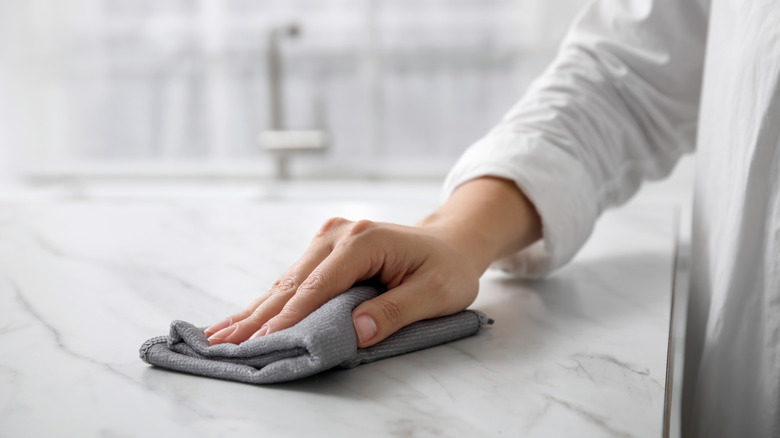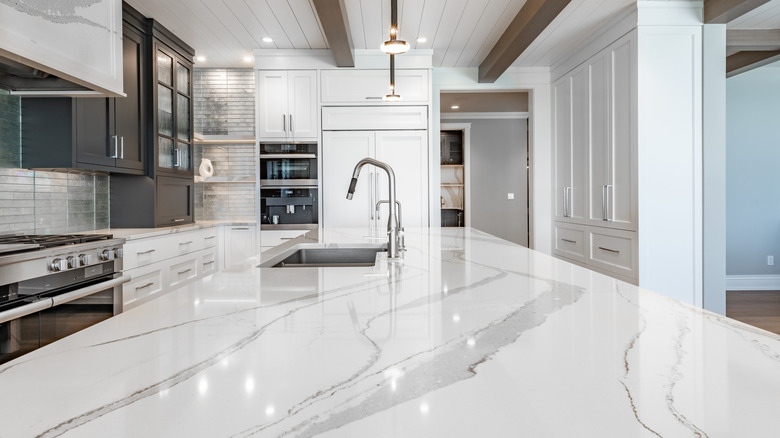Did You Know The Color Of Marble Determines What You Use To Polish Countertops?
Marble is a timeless phenomenon that has gained a lot of traction over the past few decades for its use in modern interior design. Whether you already have marble countertops or are looking to install them in the future, you should know the steps needed to protect them. While there are many products on the market nowadays that you can use to clean your marble countertops, not all cleaners yield the same results across all varieties of the stone. Color plays a monumental role in determining the best products to use when polishing your marble, as the counters may face discoloration as a result of using certain products to extract stains. As a rule of thumb, use a hydrogen peroxide concoction when lifting stains from light-colored marble counters, and use acetone when working with dark marble counters.
Marble, in general, is a very sensitive stone that can be easily defaced if treated with the wrong products. The countertops are an expensive investment for homeowners as well, with average material costs ranging from $40-100 per square foot, adding up to a possible $5,000 project altogether after factoring in labor costs and how big the project is. So, to make sure your investment lasts, check that your cleaning routine is both safe and effective for your type of marble countertops.
Which cleaner should you choose?
Darker-colored countertops may seem more appealing to consumers than lighter options, considering the former is more efficient at hiding imperfections in the stone over time. However, this isn't always the case when performing marble maintenance, since some harsher cleaning products have the ability to scratch, dull, or leave light-colored stains on marble surfaces.
When it comes to extracting stains from your marble countertops, you'll want something that will penetrate and lift the stain without permanently damaging the marble underneath. A chemical subject to controversy in the industry is hydrogen peroxide, a compound commonly used as a bleaching agent and antiseptic. While some professionals suggest avoiding the product entirely when cleaning marble countertops, others recommend using it in a concoction along with baking soda and dish soap to prevent the chemical from wreaking havoc on your stone. However, only use the product on white or light-colored counters, since there's a chance it may leave behind white spotting along the surface of your marble.
Acetone can have a similar effect on marble countertops when used to lift stubborn stains. But in contrast to hydrogen peroxide, acetone, a central component in nail polish remover, should only be used on darker marble countertops. Because hydrogen peroxide and acetone are both capable of damaging your marble if used in large increments, go over counters with a soft cloth doused in water to remove any excess chemicals after use.

